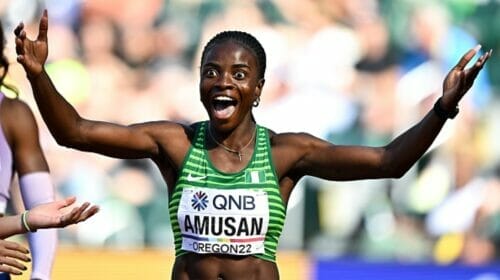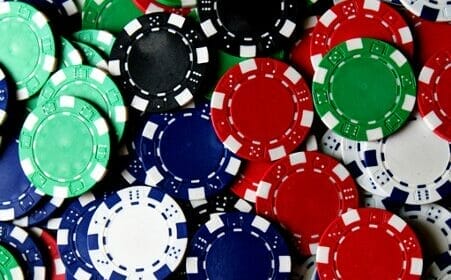The Lawman looks back

- Denis Law turns 80 today
- The Manchester United legend spoke to FIFA.com in 2014
- Interview marked 50th anniversary of his Ballon d’Or win
“Fifty years ago? Sorry, I can’t remember that far back.”
Denis Law began his 2014 interview, on the 50th anniversary of his Ballon d’Or capture, with a wind-up. He may have been getting on, but the Scotland legend – who turns 80 today – quickly proved that his wit was as sharp as ever, and his enthusiasm as boundless.
And there was nothing wrong with his memory. When it comes to recalling 1964, the year in which he became the first Manchester United player – and the only Scot – to win the Ballon d’Or, a vivid picture emerges.
“In those days, there were no big announcements like there are now,” he told FIFA.com. “You tended to find out from a local journalist about everything: when you were called up for Scotland, when there was a club in for you and so on. The Ballon d’Or was no different.
“There was no fuss, and receiving the award was the same. You see the Gala they have now and it’s all very glitzy, with the big stars there and TV broadcasting it across the world. When I won, the Ballon d’Or was presented to me before a match at Old Trafford later in the season. The crowd gave me a little cheer and that was it.
“But one thing hasn’t changed and that’s the fact it’s always been a special award to win. That’s still the case today, and I’m very proud to be able to say I’m one of the few who has done it.”
Law was a worthy recipient. Having returned to England from Torino two years earlier, the then 24-year-old had scored 30 goals in season 1963/64 and was en route to grabbing 28 more and inspiring United’s first league title since the Munich Air Disaster. He was fearless, full of flair, and loved by supporters.
Among those adoring fans was Sir Alex Ferguson, who described as “my idol” the man nicknamed ‘The Lawman’ and ‘The King’. “He was the finest player that Scotland has ever produced and one of the greatest the world has ever seen,” added the legendary United manager.
“Electric” was George Best’s preferred adjective for his Red Devils team-mate. “Denis was the best in the business,” said Best, himself a future Ballon d’Or winner. “He could score goals from a hundredth of a chance, never mind half of one.”
That ability had already been recognised the year before Law’s Ballon d’Or win when was named in a World XI to face England, this in a match marking the Football Association’s centenary. Alongside him were the likes of Lev Yashin, Alfredo di Stefano, Raymond Kopa, Djalma Santos and Eusebio. Ferenc Puskas could only make the bench. Yet despite that experience of rubbing shoulders with the game’s elite, and scoring this all-star side’s only goal, Law’s delight at the honour that followed was matched only by his astonishment.
“I knew I was playing well around that time, but the Ballon d’Or never so much as came into my head,” he said. “I honestly didn’t even think about it; didn’t consider that I could possibly be in the reckoning with the Di Stefanos and the like. It was a wonderful surprise and I think the biggest pleasure of all came from knowing the fantastic players I was up against.
“I’d had a really great thrill playing in that World XI beside two of my heroes in Di Stefano and Puskas. To me, those were the kind of guys who won the big awards. They were the superstars.
“Even when I looked around Britain, I would see one of my all-time favourite players, John Charles, and a magnificent goalscorer in Jimmy Greaves. And in Scotland, I knew from the national team that we had two real geniuses playing at Celtic and Rangers in Jimmy Johnstone and Jim Baxter.
“Then there’s Bobby Charlton across the dressing room from me at Man United and, a bit later, Besty (George Best). And that’s before you even start on all the other greats who won it around the same time. It must have been so difficult to pick a winner, particularly in that era, and I was so grateful – and genuinely surprised – that I was given the nod.”
Law certainly had plenty of competition. Either side of his triumph, there were wins for Yashin and Eusebio, while the likes of Gianni Rivera, Josef Mospust and Luis Suarez – runner-up in 1964 – all made for impressive contenders. Look beyond Europe, the Ballon d’Or’s then area of focus, and one suspects that Pele, Garrincha and one or two others might just have come into the reckoning.
This dizzying array of winners and would-be winners stands in stark contrast to the picture painted over the last decade-plus, when discussion on The Best FIFA Men’s Player has tended to centre on just two men: Lionel Messi and Cristiano Ronaldo.
“They’re extraordinary; two of the best we’ve ever seen. I don’t envy the people voting, trying to separate those two. It’s completely different to my era as we didn’t have two players dominating in the way these guys have.
“They’re both fantastic, exciting players to watch and play and score goals at such a consistent level. When you think of Messi, the size he is and the tackles he has to face every game, I’m full of admiration for him. But then Ronaldo is outstanding too, and has that physical presence too.”
Like most football enthusiasts, Law considers himself well versed on the various attributes of Messi, Ronaldo and the world’s other foremost footballers. Access to live football has never been greater than it is at present, and geographical location no longer determines how closely fans can follow their favourites’ fortunes. Again, this situation is unrecognisable from the era in which Law played and grew up, when names such as Di Stefano, Yashin and Pele were accompanied by an air of mystery and mystique.
“That’s a huge change,” he acknowledged. “There’s so much football on the TV that everyone knows these players inside-out. I was out in Chile a couple of weeks ago on behalf of Manchester United and there were hundreds of United fans there to meet us. And you’re thinking, ‘This is the other side of the world’. But because of television, that doesn’t matter now.
“It’s the same with Messi and Ronaldo. Back in the ’50s and ’60s, it was very rare to see the great players likes Di Stefano and Puskas on TV. I still remember being at Hampden for that famous European Cup final – Real Madrid’s 7-3 win over Eintracht Frankfurt – and being blown away.
“But there’s a deeper knowledge these days and football is available to watch whenever you want to watch it. That means these guys, the Ronaldos and Messis, are under the microscope and it makes what they’re doing all the more impressive. I take my hat off to them.”
This interview was first published in December 2014.












